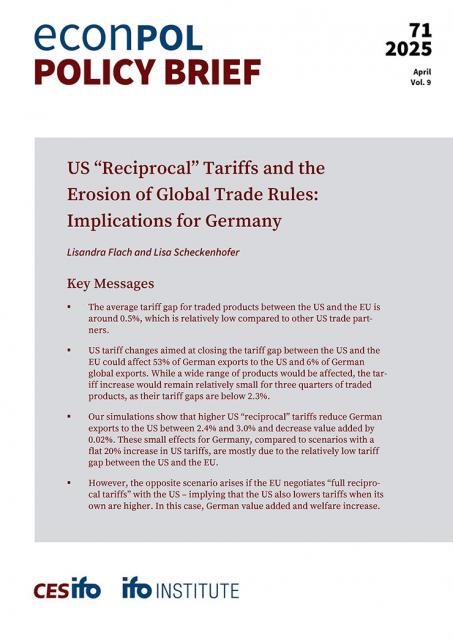News Archive

Removing Welfare Traps: Employment Responses in the Finnish Basic Income Experiment
|
Working Paper
| News
This research provides evidence that replacing minimum unemployment benefits with a guaranteed basic income of equal size has minor employment effects in an advanced country. The study examined 2,000 benefit recipients in Finland who were randomized to receive a monthly basic income between 2017 and 2018.

Corruption and Economic Growth: Does the Size of the Government Matter?
|
Working Paper
| News
Corruption has a negative effect on the economy - specifically on the level and growth of GDP - and large governments register less benefit from reducing corruption than small governments. This working paper from António Afonso and Eduardo de Sá Fortes Leitão Rodrigues finds that developing economies, regardless of government size, benefit less from reducing corruption and government size is not sufficient to explain the influence of corruption on economic activity - although the level of effectiveness of public services is crucial.

Incentives for Accelerating the Production of Covid-19 Vaccines
|
Policy Brief
| News
Delays in the availability of vaccines are very costly for society but existing fixed price contracts provide no incentives for producers to speed up delivery: a dose delivered tomorrow receives the same price as a dose delivered in the next quarter. The benefits for early delivery are huge for society, but non-existent for suppliers. A better contract would have the price fully variable over time. In this policy brief, the authors show that it is straightforward to design an optimal contract, which aligns the time paths of the price with that of the social value of a vaccination.

Survey-Based Structural Budget Balances
|
Working Paper
| News
The budget dispute between Italy and the European Commission in 2018 gave new impetus for the debate about the reliability of output gap estimation methods and their use for calculating structural budget balances. In this paper, Marcell Göttert and Timo Wollmershäuser review the main properties of the mainstream approaches. They show that the structural budget balances resulting from the production function approach and the time series approach are imprecise, subject to large revisions and often biased.

Robots at Work? Pitfalls of Industry Level Data
|
Working Paper
| News
An analysis of data from the International Federation of Robotics (IFR), currently the most widely used data on the economic effects of robotization, has found that robotization has significantly lower productivity effects than previously assumed and may cause falling wages.
